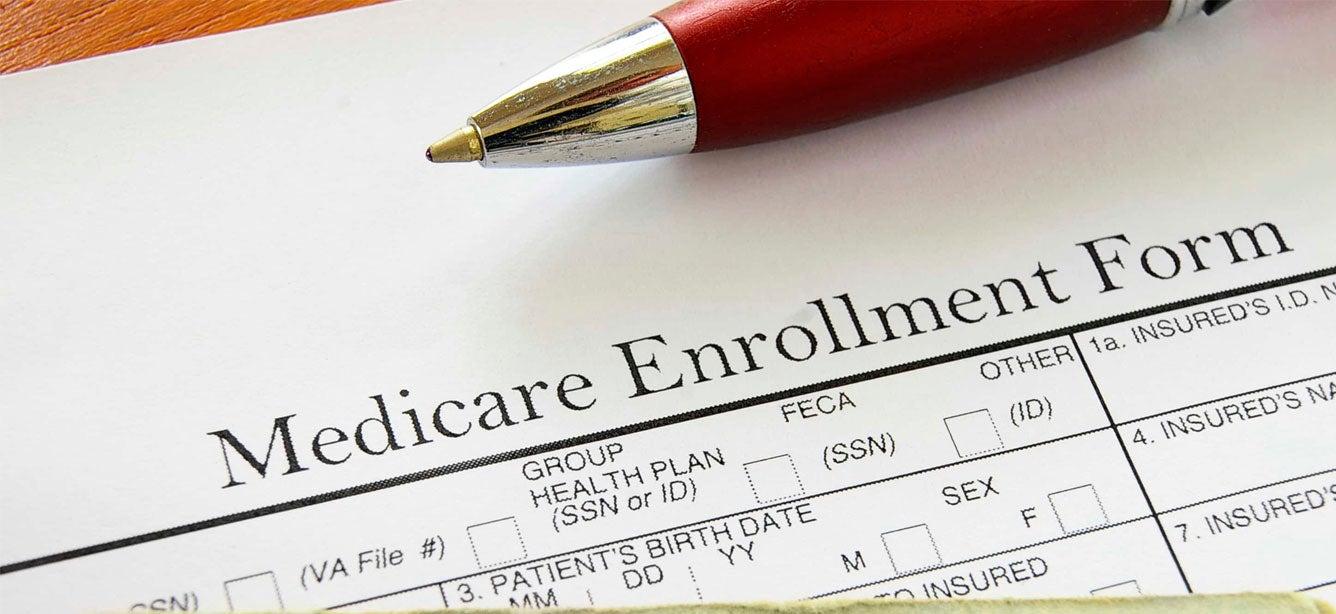
Related Topics
Medicare is the cornerstone of health care for more than 69 million Americans1—including adults 65 and older and older and younger people with certain disabilities. It’s made up of several parts, each providing a different type of coverage.
Whether you're approaching Medicare eligibility or helping someone else understand their options, we break down the basics of original Medicare, what it covers, and the out-of-pocket costs you need to consider.
What is original Medicare?
Also called traditional Medicare, original Medicare refers to Medicare Parts A and B. It works on a fee-for-service basis, meaning you can go to any provider or hospital in the U.S. that accepts Medicare. When those covered services are billed, Medicare pays a portion, and you pay the rest. While Medicare covers healthcare visits and medical supplies, it doesn’t cover all medical expenses or the cost of long-term care.
What is the difference between Medicare Part A and Part B?
Medicare Part A coverage: Hospital Insurance
Medicare Part A is often called hospital or inpatient insurance because it pays for care you receive in the hospital. Part A also pays some of the costs of stays at skilled nursing facilities, or health care at home. Finally, Part A covers hospice care for people who are terminally ill.
Medicare Part A is funded by the payroll tax (FICA) that is deposited into the Hospital Insurance Trust Fund. Most people who have a personal or spousal work history and paid into Social Security do not have to pay a premium for Part A.
Medicare Part B coverage: Medical Insurance
Medicare Part B pays for physician services, outpatient hospital care, and home health care that Part A does not pay for. It also covers:
- Diagnostic and laboratory tests, such as X-rays and blood work
- Medical equipment, such as wheelchairs and hospital beds
- Orthotics (devices that support joints) and prosthetics (artificial body parts)
- Mental health care
- Ambulance services
- Preventive services
Part B is financed by Part B premiums (paid monthly by Medicare beneficiaries) and general revenues from the federal government.
"Medicare Parts A and B create the basic framework of Medicare coverage," explained Ryan Ramsey, NCOA Associate Director of Health Coverage and Benefits. "Together, they make sure older adults have access to both inpatient and everyday medical care."
Which type of care is not covered by Medicare?
You might be wondering, “Does Medicare cover cataract surgery?” or “Does Medicare cover acupuncture?” Original Medicare has strict rules about what services it can and cannot cover. For example, home health care services are only covered under very specific circumstances for those requiring specialized therapies. Likewise, original Medicare does not cover routine dental, vision and hearing services.
Medicare Part B covers numerous preventive services to help older adults and people with disabilities stay healthy. These include an Annual Wellness Visit, cancer screenings, vaccines, and testing and management of chronic conditions.
How much is Medicare Part A and B?
All people with original Medicare have costs such as premiums, copayments, and deductibles. (see our chart of Part A and B costs in 2026.) For people who have limited incomes, the Medicare Savings Programs can help to pay for the costs of original Medicare. Three of the four available MSPs cover the Medicare Part B premium (which in 2026 is $202.90 a month).
When do you enroll in original Medicare?
Do you have to sign up for Medicare? Older adults who receive Social Security or Railroad Retirement Benefits will be enrolled automatically into Medicare at age 65. Others have to apply for Medicare through the Social Security Administration during the annual Open Enrollment Period (Oct. 15 – Dec. 7). Younger adults with disabilities generally will be enrolled automatically following 24 months of Social Security disability benefits (SSDI). But people with certain disabilities may be able to get Medicare sooner.
In addition to Open Enrollment, there are several other enrollment opportunities for people to enroll in Medicare. Everyone gets an Initial Enrollment Period for Medicare around their 65th birthday. There are also Special Enrollment Periods, such as for those who continue to work past age 65 and keep their employer insurance, and an annual General Enrollment Period.
The date that Medicare benefits begin depends on when a person enrolls, as this enrollment calendar illustrates. Older adults turning 65 may be able to delay enrollment into Medicare under some circumstances, such as having existing coverage through an employer.
How do you enroll in original Medicare?
Contact the Social Security Administration online or at 1-800-772-1213 (TTY 1-800-325-0778) to enroll in Medicare during Open Enrollment or another applicable enrollment period. If you’re wondering, “How do I get a replacement Medicare card?”, Social Security can also help you get a new card if you cannot locate yours.
You have choices for how you get Medicare coverage. If you choose to have original Medicare (Part A and Part B) coverage, you can buy a Medicare Supplement Insurance (Medigap) policy from a private insurance company.
Where is the best place to get advice on Medicare?
Choosing a Medicare plan(s) can feel overwhelming. That's why it's a good idea to get advice from someone who knows the program inside and out. Your local State Health Insurance Assistance Program (SHIP) provides free, unbiased counseling to people with Medicare and their families. To find your SHIP and talk to a trained counselor, call toll-free 1-877-839-2675 or visit the SHIP website.
You can also call Medicare directly at 1-800-633-4227 (TTY users can call 1-877-486-2048). Representatives are available 24 hours a day, 7 days a week (except for some federal holidays).
Sources
1. Centers for Medicare & Medicaid Services (CMS). Medicare Monthly Enrollment. September 2025. Found on the internet at https://data.cms.gov/summary-statistics-on-beneficiary-enrollment/medicare-and-medicaid-reports/medicare-monthly-enrollment


